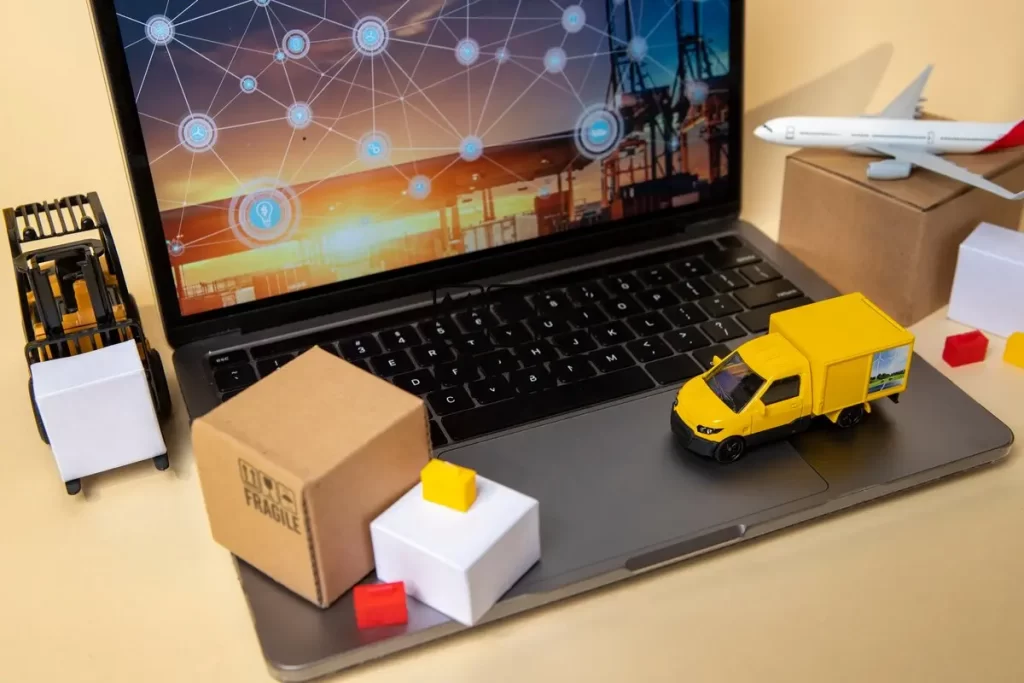Transportation firms need help to offer their services in today’s fast-paced digital world. Consumer behavior and expectations in the transportation business have changed due to technology. Companies must innovate digitally to remain ahead. Here are three essential transportation marketing strategies:
Using Analytics For Targeted Campaigns
Data analytics has transformed transportation marketing. Data helps organizations understand client preferences, behavior patterns, and market trends. Companies may use this data to focus their marketing initiatives and resonate with their audience.
Personalization is a significant advantage of data analytics in transportation marketing. Companies may personalize marketing messaging by studying website visits social media interactions and past sales.
Transportation firms can precisely analyze marketing performance using data analytics. Companies may discover which techniques work best and spend resources by measuring KPIs like conversion rates client acquisition expenses and ROI.
Brand Visibility Through Social Media
Transportation firms use social media for marketing in the digital era. Social media like Twitter Instagram and Facebook provide unrivaled consumer engagement brand visibility and sales prospects. Transport companies may attract a large consumer base and stand out by using social media.
Transportation firms may display their expertise and thought leadership on social media. Companies may establish themselves as industry leaders and attract customers by distributing useful material like blog entries infographics and videos.
Mobile Optimisation For Smooth User Experience
Mobile optimization is crucial for transportation organizations as the number of smartphones and tablets increases. Companies that dont provide seamless user experiences across all devices risk losing customers to competition.
Mobile optimization helps transportation businesses make their websites and marketing materials available on any device. A significant part of mobile SEO is responsive web design. This method makes websites responsive to screen size and resolution making them easy to use on computers smartphones and tablets.
Transportation firms may improve customer service using mobile applications. Companies may optimize transportation and provide value to clients by delivering real-time monitoring booking alerts and customer assistance. Personalization via push notifications and in-app promotions may boost conversions and revenue in mobile applications.
Learn More : How Environmental Services Can Enhance Your Marketing Success
Leveraging Influencer Marketing
Influencer marketing helps transportation firms contact new audiences and boost engagement. Companies may increase brand recognition and reach by collaborating with transportation or travel influencers who are trusted and credible. Influencer marketing generates genuine and engaging content which is a significant benefit.
Influencer-generated material is more natural and relatable than conventional advertising. Transportation firms may build brand loyalty and support by working with influencers on sponsored articles reviews and travel guides. Influencer marketing helps transportation businesses target specialized customers that are hard to reach.
By working with influencers that target specific demographics or interests organizations may adapt their content to highly focused audiences enhancing conversion rates. Influencer marketing in the transportation business is unlimited from working with a travel vlogger to promote a gorgeous train ride to a lifestyle influencer to promote a new transportation app.
Utilizing New Technologies To Improve Customer Experience
As technology advances, transportation businesses may use it to improve customer service. From VR tours to AR navigation tools, there are many new ways transportation firms can stand out in a congested industry and give value to their clients. Transportation marketing is using VR and AR to create immersive experiences.
Airlines may provide virtual cabin tours to let passengers compare seats and amenities before booking. Public transportation organizations may utilize AR navigation applications to assist passengers in traversing complicated transit networks, decreasing frustration and enhancing satisfaction.
Blockchain is another promising transportation marketing tool. Using blockchain technology, transportation businesses may improve ticketing, freight tracking, and loyalty program transparency and security. Blockchain-based smart contracts may eliminate mediators and reduce fraud in event and attraction tickets.
User-generated Content For Community Engagement
UGC is a staple of contemporary marketing, and transportation businesses are no different. Companies may use word-of-mouth marketing to develop a thriving online community by encouraging consumers to share their trip experiences, images, and reviews on social media.
A fundamental advantage of UGC is its authenticity and legitimacy. Seeing genuine consumers’ good experiences with a transportation provider increases their confidence and likelihood of adopting its services. UGC humanizes the business and gives consumers a feeling of belonging, creating long-term loyalty and advocacy.
Transportation firms get new, exciting material from UGC for marketing. Companies may connect and inspire their audience without creating original content by reposting user-generated photographs, videos, and testimonials on their social media channels or websites.
Learn More : Digital Marketing Strategies For Construction Firms
Increase Online Visibility With SEO
Transportation firms’ online visibility to prospective consumers depends on SEO. Ranking high in search results may boost a company’s exposure and website traffic since millions use Google to locate transportation. Transportation company SEO aims to rank websites high for relevant keywords and phrases.
This entails optimizing page names, meta descriptions, and headers and providing high-quality, relevant content that meets user search intent. Transportation firms may boost their organic search rankings and get more qualified leads by regularly providing appropriate and exciting content.
Transportation firms may target local clients using local SEO. They should optimize their Google My Business page, get local citations, and encourage good reviews. Companies may enhance client discovery and conversions by showing in local search results for transportation services.
Chatbots Improve Customer Support
Customers demand immediate access to information and help in the digital era. Transportation firms may automate and simplify customer service using chatbots to satisfy this demand and create a smooth customer experience.
AI-powered chatbots can answer queries, provide information, and complete real-time transactions. Transportation firms may provide 24/7 customer service without human contact by using chatbots on their websites or mobile applications.
This boosts efficiency, reaction time, and customer satisfaction. Chatbots may reveal consumer preferences, pain spots, and behavior trends. Transportation firms may enhance, tailor marketing, and predict client demands by evaluating this data, boosting company development.
Conclusion
Navigating the digital highway of transportation marketing requires a deliberate mix of creative tactics customized to the changing digital world. Transportation firms have several options, from influencer marketing and developing technology to SEO and virtual events.
Adopting these techniques, businesses may boost brand awareness, consumer engagement, and transportation industry success. Not simply keeping up with the digital revolution but leading with inventiveness, agility, and a tireless emphasis on customer happiness.





